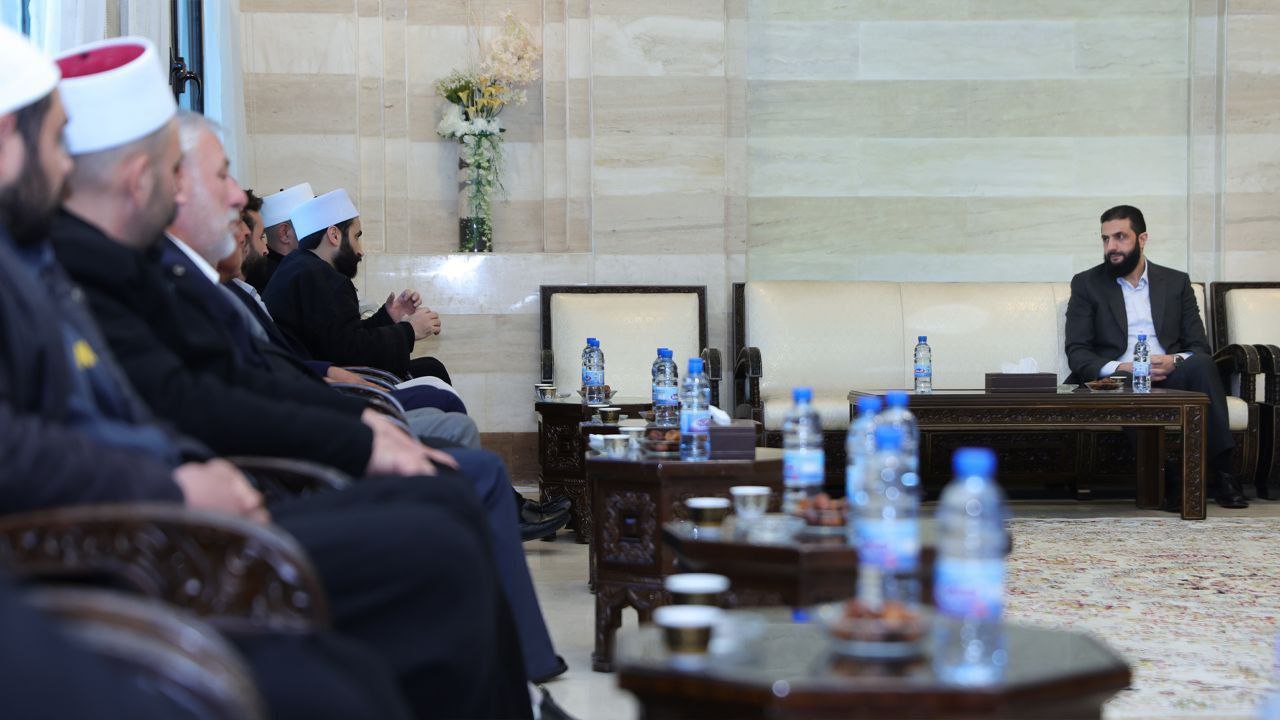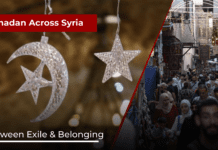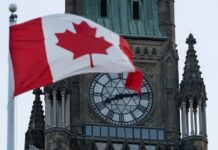
Caretaker Prime Minister Muhammad Al-Bashir of the Syrian Transitional Government (STG) emphasized the smooth power transfer, highlighting their efforts to maintain essential services, security, and stability during the handover. “Our goal was to avoid chaos and ensure continuity of services, which we successfully achieved,” he said.
However, the challenges are daunting. The regime’s collapse left the STG with crumbling infrastructure, deep corruption, and a treasury looted of resources. “We inherited an empty treasury,” Al-Bashir stated, urging the international community to lift sanctions, release frozen funds, and support Syria’s recovery.
The STG has prioritized restructuring outdated institutions, including the judiciary, to address past crimes and build a fair legal system. Al-Bashir called for the return of displaced Syrians to participate in rebuilding the nation, emphasizing that their involvement is essential for shaping Syria’s future.
Health & Administrative Reforms
The transitional Health Minister outlined plans to streamline coordination with humanitarian organizations through a centralized Humanitarian Coordination Office. The Ministry pledged to eliminate irregularities and establish a unified salary scale while considering workforce reductions to ensure fiscal sustainability. Such initiatives aim to stabilize public health services in a nation where 40% of healthcare facilities remain partially or completely out of service, according to UNICEF.
SNC Returns to Syria
The Turkey-based Syrian National Coalition (SNC), an opposition political body that spent years of war outside of the country, announced plans to establish a headquarters in Syria. Coalition leader Hadi Al-Bahra emphasized the importance of an inclusive transitional government that reflects Syria’s diversity and avoids sectarianism.
“This government must be credible and represent all Syrians,” Al-Bahra said during a press conference. He added that the transitional phase will culminate in a new constitution and democratic elections within 18 months. Al-Bahra highlighted the coalition’s role in securing international support for the STG and its alignment with the Turkish-backed Syrian National Army (SNA).
Inclusion of Kurdish Regions & Dialogue with SDF
The Syrian Democratic Forces (SDF), under pressure from the STG and revolutionary movements to ensure Syrian territorial integrity, expressed readiness to cooperate with the new Damascus authority. SDF commander Mazloum Abdi announced plans for a demilitarized zone (DMZ) in Kobani to address Turkish security concerns and facilitate reconciliation with the central government. “Syria will not be divided,” said Ahmad al-Sharaa, head of the Command of Military Operations (CMO). He stressed that areas controlled by the SDF would be integrated into the national framework during this transitional period.
The need to rebuild trust among diverse communities such as Kurds, Assyrians, Christians, or Druze remains at the forefront of STG’s concerns. Al-Sharaa emphasized the importance of drafting a constitution that reflects Syria’s traditions while ensuring inclusivity. “Our mission is to rebuild Syria and create a governance model that reflects the real Syria,” he said.
A Lack of International Engagement
Al-Bashir and Al-Bahra both expressed frustration with the lack of international support, accusing the global community of betraying the Syrian people during their struggle. They called on world powers to honor their commitments by lifting sanctions, funding reconstruction, and returning and prosecuting regime criminals.
CMO commander al-Sharaa stressed the need to reassess international policies toward Syria’s revolutionary institutions, including Hayat Tahrir al-Sham (HTS). “The inclusion of HTS on the terror list is a result of political will, not evidence,” he said, arguing that HTS has not targeted civilians and should not be equated with groups that do. Sharaa called for the removal of sanctions that hinder reconstruction, stating that such measures disproportionately punish the Syrian people for the actions of the deposed regime.
He also stressed that Syria’s unique social and cultural fabric sets it apart from places like Afghanistan. “Syria is exhausted by war but is not a threat to its neighbors or the West,” Sharaa explained. He urged the international community to recognize this distinction and support Syria’s efforts to rebuild through inclusive governance and economic recovery.
As Syria navigates this transitional phase, the focus remains on securing peace, addressing humanitarian needs, and creating a democratic foundation for future generations. The path forward is fraught with obstacles, but the STG insists on a vision of unity and resilience for a new Syria.








